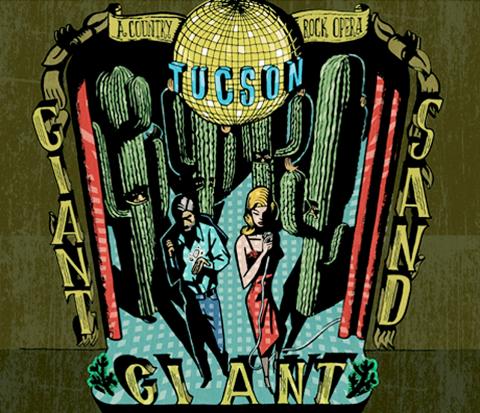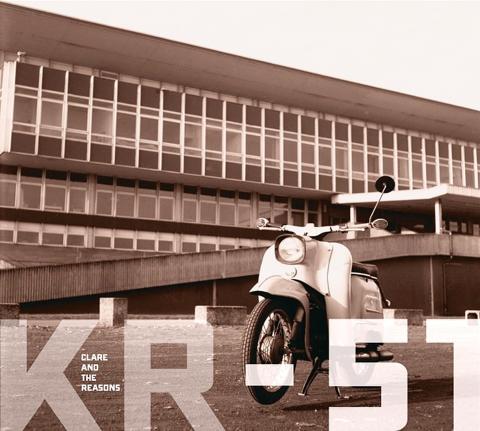LIDERES, Wisin Yandel, Machete
For the Puerto Rican duo Wisin y Yandel, going worldwide is a careful, short-yardage game of rhythm and language. Twelve years after they started making scrappy reggaeton records, they’re still inching toward pop omnipresence. But in the last few years the sands have shifted. The route has become clearer for acts like them, as well as for them specifically, and Lideres (“Leaders”), their ninth studio album, is their biggest push toward the pop mainstream.
A heavy application of electronic dance-music rhythm and texture can now provide a boost to any pop genre. Pitbull, the Cuban-American rapper and producer, has spent the last few years bulldozing express routes among European techno, hip-hop and Latin pop, while Jennifer Lopez, who has some control over English-speaking media through her role on American Idol, brought Wisin y Yandel on to the season closer of that show in May to promote her new bilingual collaboration with them, Follow the Leader.

Follow the Leader is the lead single on Lideres, and as a whole the record is almost mathematically balanced between gaining ground (which essentially means softening) and keeping their old, hard authority. In words and music, it’s about the dance floor as much as about the bedroom. It retains just enough of their earlier music’s basic rhythms — as well as the sexual aggression — but it’s tempered with other ingredients, more so than any of their past records.
Yandel’s singing has gradually grown more melodic and romantic, even through heavy layers of Autotune; Wisin still raps in his straight eighth-note, nail-gun bark, but more of the time he’s riding milder rhythms now.
About a third of the songs here — including both bilingual tracks, Follow the Leader and Algo Me Gusta de Ti, with a Chris Brown verse-vocal and a 16-bar T-Pain rap — are in straight four-four dance-pop rhythm, minus the lurching Antillean beat of reggaeton. Some, including Una Bendicion and No Te Detengas go in for cartoonish, woozy, saturated synthesizer tones; otherwise, instant pan-Latinisms are achieved by synthesizer presets that sound like accordion, wood-flute and nylon-string guitar. Parts of some tracks wouldn’t be out of place on records by Pitbull, Shakira or even LMFAO. And Vengo Acabando is a reggaeton take on none other than Eurythmics’ Sweet Dreams — a dance and radio hit that long ago went global in a way that perhaps this group would like to.

— Ben Ratliff, NY Times News Service
TUCSON, Giant Giant Sand, Fire
An amiable improbability has sustained Howe Gelb’s band Giant Sand since 1983. Based in Tucson, Giant Sand grounds its music in the country-and-Mexican heritage of the Southwest, although the longtime core of the band hails from Denmark, and Gelb has, through the years, dipped into flamenco, psychedelic rock, punk and other noisy whims.

For Tucson, Gelb added six more musicians to the band — hence the renamed Giant Giant Sand — including a Mexican-American contingent that provides more direct connections to cumbia, bolero and mariachi. He also strung a story line through 19 songs, enough to subtitle the album “A Country Rock Opera” and to supply a detailed visual and psychological scenario in the liner notes.
It’s a tale of wanderings through surreal desert landscapes, of romance lost and found, of nature and fate and of the ways they all mirror one another: “You’re so much like the river, beautiful twisted and blue/You appear to be here forever, but really just passing through,” Gelb sings at the end of the album.
But the plot’s not the thing. The opera’s main character — described by Gelb as “a semi-grizzled man with overt boyish naivete” — is the kind of existential drifter who’s been ambling through Gelb’s songs all these years, a figure (and singer) who ponders and aphorizes like Leonard Cohen, Johnny Cash and Tom Waits. His route on Tucson is mostly a pretext for waltzes, rockabilly shuffles, quietly torchy ballads and bouncy Mexican cumbias. A few songs are written or sung by other band members, notably Brian Lopez, who brings a tremulous croon to his own philosophizing in Love Comes Over You, and Lonna Kelley, who teases through the slinky, fingersnapping Ready or Not, wondering, “When the end of the world comes near, will you be ready?”

Although the band is large, it doesn’t pile on all at once. Steel guitar, accordion, mariachi trumpet, lounge piano or a small string section are available as needed, but most of the music stays modest and intimate, staying out of the way of the graceful tunes and laconic thoughts. Gelb makes himself cozy in wide-open spaces.
— Jon Pareles, NY Times News Service
TOMORROW SUNNY/ THE REVELRY, SPP, Henry Threadgill Zooid, Pi
There’s a great deal of verticality in the music of Zooid, the obliquely chamberlike ensemble led by the composer and multireedist Henry Threadgill. The group functions inside a complex system — with a ruling calculus of intervals and an ensuing tangle of calibrations — that can make each instant of unfolding action feel pivotal and discrete. That could get exhausting, if you chose to focus on it. But there’s a great deal of horizontal energy in the music, too: Those instants flicker past like the frames in a moving image, creating a sleek machinery of plot.
Threadgill formed Zooid more than a decade ago: It’s the longest-tenured band of his career, which began in 1960s Chicago, during the preliminary stirrings of the Association for the Advancement of Creative Musicians. Tomorrow Sunny/The Revelry, Spp is his fourth album with the group and suggests a natural extension of its vocabulary. From the initial lurch of the opening track, A Day Off, this album flutters around Threadgill’s preferred zone of tumbling funk, brambly counterpoint and deft, darting syncopation.
What differentiates this album from its precursors — including both head-spinning volumes of This Brings Us To, released on Pi in 2009 and 2010 — partly involves the personnel. Zooid’s lineup has long featured Threadgill on alto saxophone and flute, Liberty Ellman on guitar, Jose Davila on trombone and tuba, Stomu Takeishi on bass guitar and Elliot Humberto Kavee on drums. The new album adds the cellist Christopher Hoffman, which creates yet more possibility for layered texture, and echoes the first edition of Zooid, which also had cello in the mix.
It’s a subtle alteration, but it registers. Hoffman often plays pizzicato rather than with a bow, and the result, on a space-filled track like So Pleased, No Clue, can foster a coiled suspense. When he does turn to bowed phrases, as on the following track, See the Blackbird Now, the mournfulness in his tone can bring an emotional depth that this band hasn’t often bothered to attempt. As if to emphasize the shift, Threadgill makes his own entry on bass flute, an instrument that warms and softens his attack.
Look for them and you’ll find striking individual contributions on this album — the chiming angularity of Ellman’s guitar on Tomorrow Sunny, the halting whinnies of Threadgill’s alto saxophone on A Day Off — but as is customary for Zooid, the parts yield to a whole. And the album, which runs under 45 minutes, exerts its own momentum, so that the most dazzling track, Ambient Pressure Thereby, arrives with climactic intensity, as an onrushing confrontation.
—Nate Chinen, NY Times News Service
KR-51, Clare and the Reasons, Frog Stand
A lone banjo plinks as Clare Manchon sings “Empty, empty,” in This Too Shall Pass on KR-51, the third album by Clare and the Reasons. But she’s not isolated for long. By the end of the song, her voice has multiplied into a choir and she’s surrounded by strings, horns, a quasi-military drumbeat and gossamer swirls of harp, all to bolster and reassure her as she wishes, “let it wash away.”
For Clare and the Reasons — Manchon, her husband and songwriting collaborator Olivier Manchon and guitarist Bob Hart — arrangements have always been nearly as crucial to the songs as words and melodies. It’s chamber-pop that, on the band’s first two albums, generally revolved around folky guitars and genteel string sections, although there were always surprises.
The group toured with and accompanied Van Dyke Parks, who has collaborated with Brian Wilson (on Smile) and Joanna Newsom (on Ys); Parks’ own songs are prismatic, cinematic excursions through American history and fantasy, and he clearly rubbed off on Clare and the Reasons. KR-51 opens up their music: sometimes to orchestral luxury and nuance — their arrangements were played by the Orchestre de Paris — and sometimes to rock crunch.
For KR-51, Clare and the Reasons decamped from Brooklyn to Berlin — the album is named after the model of moped they used to get around the city — and soaked up a European ambience, often melancholy and displaced. It’s an album made by self-conscious visitors, with glimmers of Kurt Weill and of David Bowie’s Berlin trilogy. Step in the Gold begins with an impressionistic flourish and goes on to invoke Lotte Lenya and the Bauhaus; Colder contemplates a bleak square in a “fallen city on bloody knees,” in a ballad that moves from art-song piano chords to slashes of guitar distortion.
“I’ve got a lot of big ideas,” Manchon sings in PS; her voice is high and sweet with a girlish flutter, but she’s no naif. In The Lake, she closely observes herself breaking someone’s heart: “Your ears are so eager to take on my words,” she whispers. “When I open my mouth I just breathe out and shrug my shoulders.” Other songs turn surreal, like Westward, overlaying folky picking with Hollywood-epic swirls for the tale of a woman trying to sail away from her sorrows. Like the rest of the album, it’s an exquisite, mutable voyage.
— Jon Pareles, NY Times News Service

June 23 to June 29 After capturing the walled city of Hsinchu on June 22, 1895, the Japanese hoped to quickly push south and seize control of Taiwan’s entire west coast — but their advance was stalled for more than a month. Not only did local Hakka fighters continue to cause them headaches, resistance forces even attempted to retake the city three times. “We had planned to occupy Anping (Tainan) and Takao (Kaohsiung) as soon as possible, but ever since we took Hsinchu, nearby bandits proclaiming to be ‘righteous people’ (義民) have been destroying train tracks and electrical cables, and gathering in villages

Swooping low over the banks of a Nile River tributary, an aid flight run by retired American military officers released a stream of food-stuffed sacks over a town emptied by fighting in South Sudan, a country wracked by conflict. Last week’s air drop was the latest in a controversial development — private contracting firms led by former US intelligence officers and military veterans delivering aid to some of the world’s deadliest conflict zones, in operations organized with governments that are combatants in the conflicts. The moves are roiling the global aid community, which warns of a more militarized, politicized and profit-seeking trend

The wide-screen spectacle of Formula One gets a gleaming, rip-roaring workout in Joseph Kosinski’s F1, a fine-tuned machine of a movie that, in its most riveting racing scenes, approaches a kind of high-speed splendor. Kosinski, who last endeavored to put moviegoers in the seat of a fighter jet in Top Gun: Maverick, has moved to the open cockpits of Formula One with much the same affection, if not outright need, for speed. A lot of the same team is back. Jerry Bruckheimer produces. Ehren Kruger, a co-writer on Maverick, takes sole credit here. Hans Zimmer, a co-composer previously, supplies the thumping

Dr. Y. Tony Yang, Associate Dean of Health Policy and Population Science at George Washington University, argued last week in a piece for the Taipei Times about former president Ma Ying-jeou (馬英九) leading a student delegation to the People’s Republic of China (PRC) that, “The real question is not whether Ma’s visit helps or hurts Taiwan — it is why Taiwan lacks a sophisticated, multi-track approach to one of the most complex geopolitical relationships in the world” (“Ma’s Visit, DPP’s Blind Spot,” June 18, page 8). Yang contends that the Democratic Progressive Party (DPP) has a blind spot: “By treating any